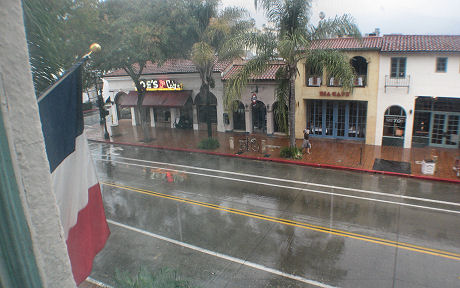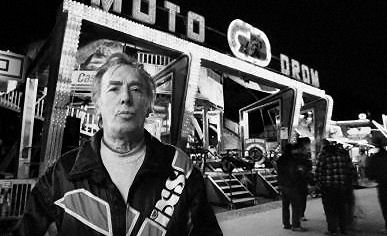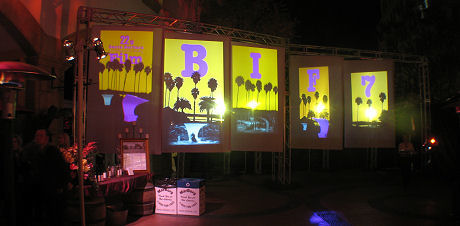Two fascinating panel discussions happened today at the Santa Barbara Film Festival. I recorded both with my Olympus WS-300M, which I put right smack dab on the stage, five feet in front of the panelists…and it didn’t quite work. The voices sound echo-y and a bit faint. There’s a lot of good stuff in both discussions, but you’d do well to listen with headphones. They both last over an hour.
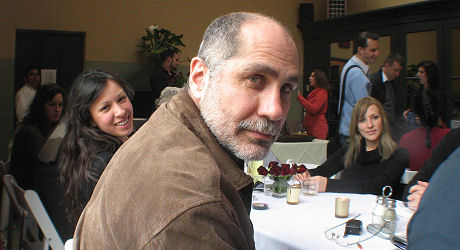
Babel screenwriter Guillermo Arriaga and Night Buffalo co-producer Jimena Rodriguez in a backstage salon at Santa Barbara’s Lobero Theatre — Saturday, 1.27.07, 1:25 pm — prior to 2 pm screenwriter’s panel discussion
The first was “Directors on Directing”, which kicked off at 11 am. It was moderated by Peter Bart, producer and co-host of AMC’s “Sunday Morning Shootout,” with directors Alejandro Gonzalez Inarritu (Babel), Todd Field (Little Children), Gil Kenan (Monster House), Valerie Faris and Jonathan Dayton (Little Miss Sunshine), and John Lasseter (Cars).
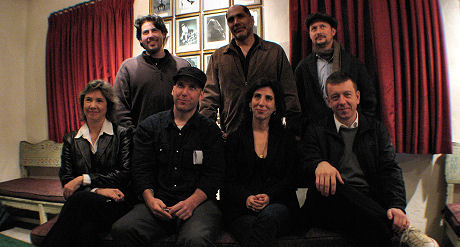
Today’s “It Starts With the Script” panel — (bottom, l. to r.) Anne Thompson, Michael Arndt, Aline Brosh McKenna, Peter Morgan; (top, l. to r.) Jason Reitman, Guillermo Arriaga, Todd Field — 1.27.07, 1:55 pm
“It Stars With the Script”, a screenwriters’ panel moderated by Hollywood Reporter columnist Anne Thompson, began at 2 pm. Screenwriters Michael Arndt (Little Miss Sunshine), Guillermo Arriaga (Babel), Todd Field (Little Children), Aline Brosh McKenna (The Devil Wears Prada), Peter Morgan (The Queen/The Last King of Scotland), and Jason Reitman (Thank You For Smoking) participated.
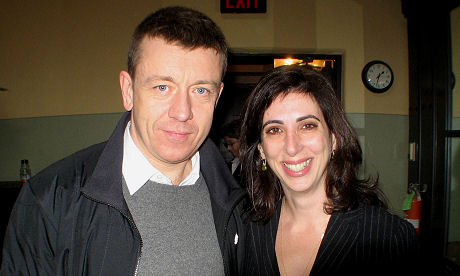
Screenwriters Peter Morgan, Aline Brosh McKenna prior to writers’ panel discussion; (l. to r.) (l. to r.) Peter Bart, Jonathan Dayton, Valerie Faris; Director’s Panel during session; writer’s group; (l. to r.) Alejandro Gonzalez Inarritu, Bart, Dayton; Little Children director-cowriter Todd Field



